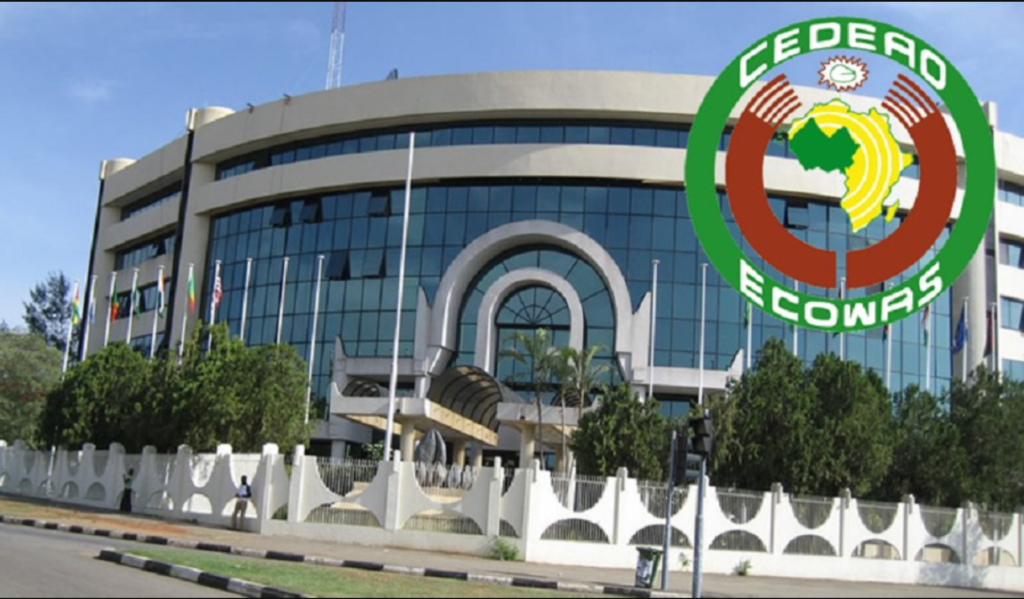The Economic Community of West African States (ECOWAS) has reached an understanding with Mali, Burkina Faso, and Niger to collaborate on addressing terrorism and violent extremism in the region.
President of the ECOWAS Commission, Dr. Omar Alieu Touray, disclosed this on Thursday at the opening of the 94th Ordinary Session of the ECOWAS Council of Ministers in Abuja.
Though he did not provide details on the nature of the deal with the three former members of the regional bloc, Touray stressed the importance of unity in confronting common threats.
“On the issue of security and political stability, we have secured an understanding with Burkina Faso, Mali, and Niger on the need to build confidence and work together to collectively confront terrorism and violent extremism,” he said.
He added that ECOWAS member states must continue to work towards shared goals in security, political stability, and economic development. He also revealed that discussions with Guinea on its political transition have resumed, with ECOWAS working to create an enabling environment for Guineans to determine their political future.
The session also focused on regional trade and economic integration, particularly the need to address the persistent challenge of non-tariff barriers (NTBs). Touray described NTBs as a major obstacle to trade, investment, industrialisation, and economic growth in the West African region.
Non-tariff barriers include import quotas, technical barriers to trade, sanitary and phytosanitary measures, and cumbersome customs procedures that hinder the free flow of goods and services between countries.
“There is an urgent need to revisit the issue of non-tariff barriers within the framework of the ECOWAS Trade Liberalisation Scheme (ETLS) and the African Continental Free Trade Area (AfCFTA),” Touray said.
He recounted his May road trip from Lagos to Cotonou to inspect the Seme/Krake joint border post between Nigeria and Benin, saying, “I saw firsthand the challenges posed by non-tariff barriers along the corridor. We must do everything to eliminate them and facilitate economic exchange across the region.”
Touray also disclosed that ECOWAS Ministers of Trade and Industry had examined a cooperation agreement between the ECOWAS Regional Competition Authority (ERCA) and member states on competition and consumer protection rules. He said the ministers had requested that member states sign the agreement by the end of June 2025.
Additionally, the ministers approved the regional Trade and Investment Promotion Strategy and urged member states to fast-track the ratification of the WTO Fisheries Subsidy Agreement and the AfCFTA.
On inter-regional and international trade, Touray said the ministers reviewed the West Africa-European Union Economic Partnership Agreement (WA-EU EPA) and called for further national consultations—particularly with private sector stakeholders—to determine the next steps.
The ministers also discussed the implications of the new United States tariff policy and the need for a regional response. According to Touray, progress has been made on standard harmonisation through the ECOWAS Standards Harmonisation Model (ECOSHAM), the revised ECOWAS Quality Infrastructure Scheme, and the mutual recognition agreement for inspection certificates. He noted that 58 ECOWAS textile standards (ECOSTANDS) had been approved to strengthen trade and industrialisation in the region.
In his address, the Chairman of the Council of Ministers and Nigeria’s Minister of Foreign Affairs, Ambassador Yusuf Maitama Tuggar, called for critical reflection and decisive action toward regional integration and collective prosperity.
He said it was important to revisit the founding philosophy of ECOWAS and other African regional economic blocs, which is rooted in the fight against neo-colonialism.
“For newly independent African countries, staying isolated from your neighbours means continued dependence on former colonial masters, locking you into the export of raw materials and cash crops. But trading freely with your neighbours, developing infrastructure together, and building indigenous industries promote self-reliance and economic liberation,” Tuggar said.
He urged the ministers to engage in open and constructive dialogue, share best practices, and collaborate to ensure that decisions taken during the session translate into tangible benefits for citizens across the ECOWAS region.















